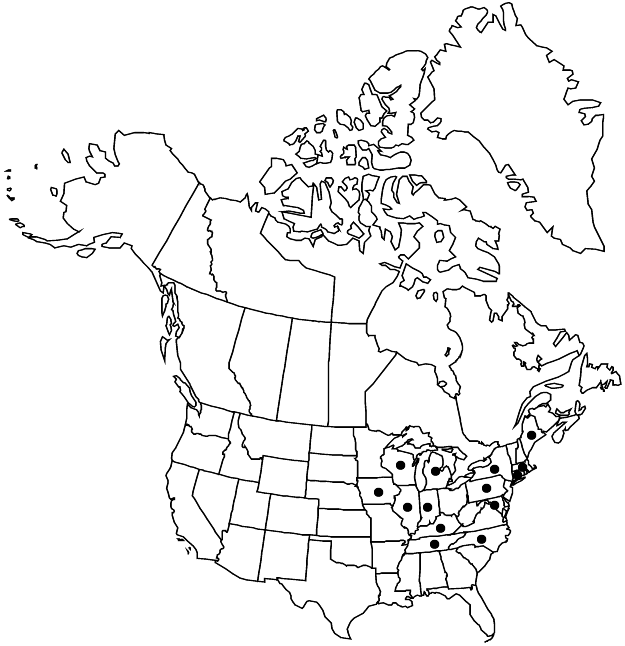Lysimachia clethroides
in A. P. de Candolle and A. L. P. P. de Candolle, Prodr. 8: 61. 1844 (as chlethroides) ,.
Stems erect, simple or sometimes branched apically, 3–10 dm, stipitate-glandular, especially distally, pubescent, or glabrous; rhizomes thickened; bulblets absent. Leaves alternate; petiole (0.1–) 0.3–2 cm, eciliate; blade broadly elliptic to lanceolate or ovate, 5–11 × (1.6–) 2–5 cm, base cuneate, decurrent, margins entire, plane (sometimes revolute), sparsely ciliolate or stipitate-glandular, apex acute to acuminate, surfaces punctate, pubescent or sparsely stipitate-glandular; venation pinnate. Inflorescences terminal, nodding racemes, 8–20 cm. Pedicels 0.4–1.5 cm, stipitate-glandular or pubescent. Flowers: sepals 5, calyx with longitudinal dark resin canals paralleling margins, 2.5–3.5 mm, pubescent or stipitate-glandular at least proximally, lobes lanceolate to ovate, margins thin; petals 5, corolla white, not streaked, campanulate to somewhat rotate, (4.5–) 7–9 mm, lobes with margins entire, apex rounded, stipitate-glandular adaxially; filaments connate to 1.6 mm, shorter than corolla; staminodes absent. Capsules 1.5–3 mm, not punctate, glabrous.
Phenology: Flowering summer.
Habitat: Moist, shady meadows and other sites
Elevation: 0-300 m
Distribution

Introduced; Conn., D.C., Ill., Ind., Iowa, Ky., Maine, Mass., Mich., N.Y., N.C., Pa., Tenn., Wis., e Asia, also in nw Europe
Discussion
Lysimachia clethroides has been reported from Quebec, apparently as an adventive.
Lysimachia clethroides is similar to another introduction from eastern Asia, the Manchurian loosestrife, L. barystachys Bunge. The latter is known in the flora area only from Clarke County, Georgia; it may be expected elsewhere; floral features are similar to those of L. clethroides; the two differ in vegetative features. Lysimachia barystachys has linear-elliptic to lanceolate or narrowly ovate leaf blades; L. clethroides has broadly elliptic to lanceolate or broadly ovate leaf blades. Reports of differences in floral length (J. D. Ray 1956) appear to be erroneous; J. Ohwi (1965) indicated that L. barystachys has corollas 7–12 cm in diameter versus 8–12 cm in L. clethroides; I have found dried garden flowers of L. clethroides measuring 7.5–10 cm.
Selected References
None.
Lower Taxa
"dm" is not declared as a valid unit of measurement for this property.